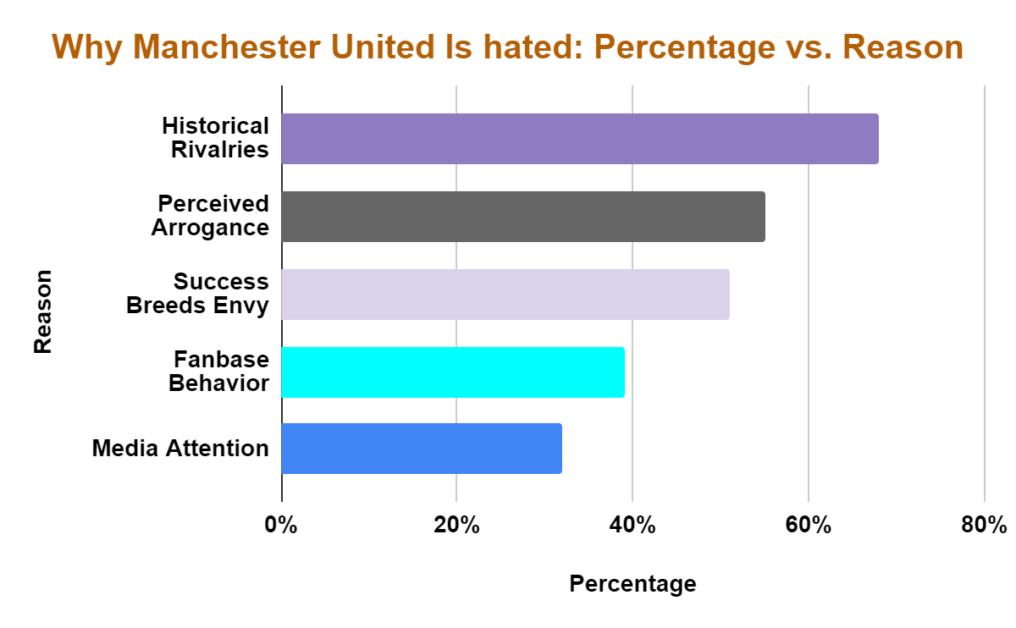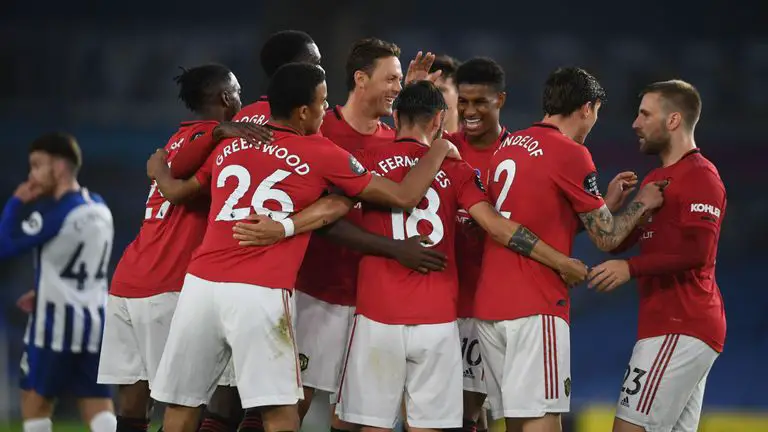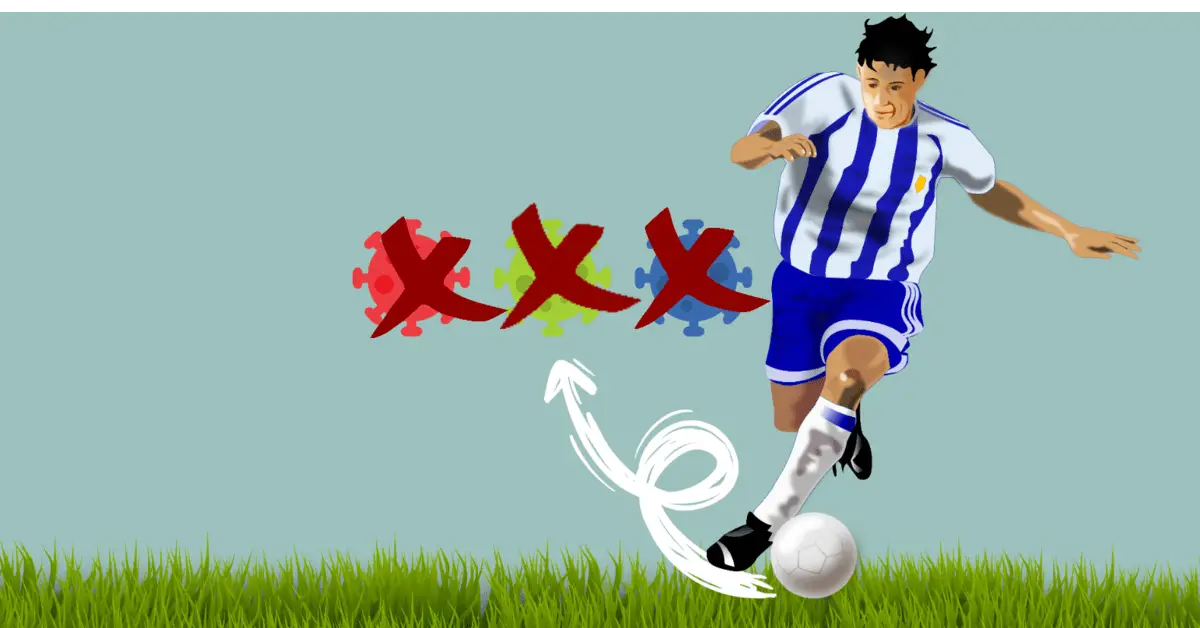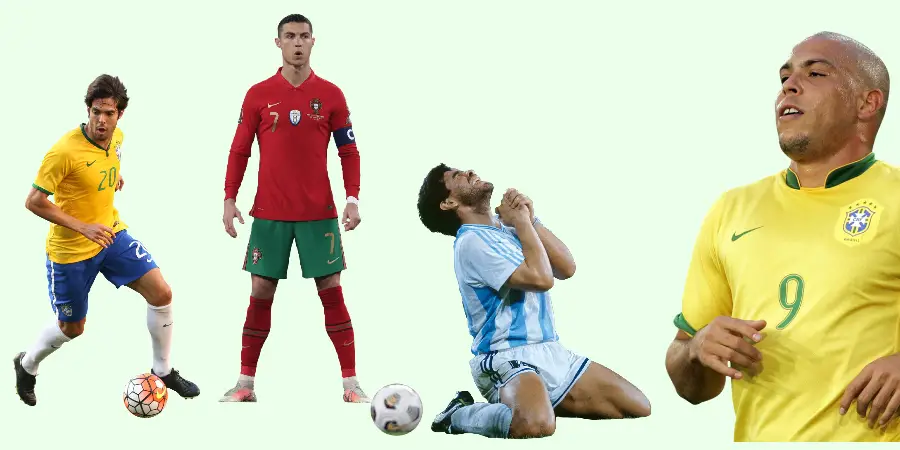In the football world, there’s a team that lots of people either really like or strongly dislike, and that’s Manchester United. People often wonder why Manchester United is hated.
To figure out why, I talked to rival fans and did online surveys. What I learned from these conversations and surveys is the basis for this article. We’ll dive into the reasons why many people don’t have warm feelings for one of England’s most famous football clubs.
Let’s find out why Manchester United is both loved and loathed in the world of football.
Background Info Of Online Poll and Personal Engagements
To get a comprehensive perspective on why Manchester United is viewed with such a mixture of emotions, I conducted both personal discussions and an open online poll.
Ten of my friends, who are die-hard supporters of rival clubs such as Manchester City, Liverpool, and Arsenal, were more than willing to share their insights.
In these face-to-face conversations, their candid thoughts and genuine passion for their own teams provided valuable insights into why Manchester United is hated.
For the online poll, I opened it up to football fans from all over. The assumption here was that only non-Manchester United fans would respond, ensuring that we heard from those who may hold less favourable opinions.
A total of 35 individuals participated in the poll, contributing their perspectives to the larger picture of why Manchester United garners such diverse sentiments.
While we’re yet to delve into the specifics of what was revealed, these combined sources of information promise a rich and varied set of reasons behind the question, “Why is Manchester United hated?”
Read Up: Best Man City Players of All Time
Summary of the online poll and engagement
From Personal Engagements with 10 Friends
- Historical Rivalries: During my face-to-face conversations with friends who support clubs like Manchester City, Liverpool, and Arsenal, it became evident that historical rivalries play a major role in the dislike for Manchester United. A significant 6 out of 10 friends mentioned this as a primary reason.
- Perceived Arrogance: Another key factor is the perceived arrogance often associated with Manchester United. 5 out of 10 friends cited this as a major source of animosity. They pointed to instances where the club’s success was accompanied by an attitude that rubbed rival fans the wrong way.
- Success Breeds Envy: 4 out of 10 friends admitted that they resented Manchester United’s sustained success. This envy is driven by the club’s numerous Premier League titles and Champions League triumphs. The fear of their own team being eclipsed by the Red Devils fueled this sentiment.
Read Also: How Many Nigerians Have Played For Man United?
From the Online Poll (35 Respondents)
- Historical Rivalries: Just like in personal engagements, historical rivalries emerged as a top reason in the online poll, with 68% of respondents emphasizing the intense rivalries that fuel their dislike for Manchester United.
- Perceived Arrogance: In the online poll, 55% of respondents expressed their aversion to Manchester United’s perceived arrogance, indicating that this sentiment is widely shared among rival fans.
- Success Breeds Envy: Success continued to be a significant factor in the online poll, with 47% of respondents feeling envious of Manchester United’s achievements.
- Fanbase Behavior: 39% of poll participants highlighted the behavior of Manchester United’s fanbase, including their online presence and sometimes excessive celebration, as a source of their dislike.
- Media Attention: A substantial 32% of respondents felt that the club’s disproportionate media coverage added to their negative perception of Manchester United.
Aggregate Score of Votes (Ranked by Popularity) – Why Manchester United is Hated
- Historical Rivalries: 68% (combined percentage from personal engagements and online poll)
- Perceived Arrogance: 55%
- Success Breeds Envy: 51%
- Fanbase Behavior: 39%
- Media Attention: 32%

Based on the aggregate score, it’s clear that historical rivalries are the leading cause of Manchester United’s unpopularity, with nearly 70% of respondents pointing to this as the primary reason for their disdain. This suggests that the history and intense competition surrounding the club have left a lasting mark on rival fans’ sentiments.
Each Reason Why Manchester United Is Hated Explained
Historical Rivalries (68%)
Historical rivalries are an integral part of football’s rich tapestry, and in the case of Manchester United, these rivalries are deeply etched into the sport’s history. It’s not just about what happens on the field; it’s about the cities, the communities, and the traditions behind these clubs. For instance, the rivalry with Liverpool is not just a matter of who wins on the day. It extends to the competition between two historically working-class cities, with a rich footballing heritage. The intensity of this rivalry has been further stoked by Manchester United’s success in the Premier League era, as they have edged closer to Liverpool’s record of 19 top-flight titles.
Similarly, the Manchester Derby against Manchester City is a classic example of how a rivalry goes beyond mere football. Both clubs represent different facets of Manchester’s social and cultural history. The rise of Manchester City in the modern era has intensified this rivalry, as City seeks to establish its own legacy and challenge the dominance that Manchester United enjoyed for years.
Perceived Arrogance (55%)
Perceived arrogance, while subjective, is often rooted in real-life instances where Manchester United has projected a sense of overconfidence. During Sir Alex Ferguson’s illustrious reign, the club often displayed a swagger that, while endearing to its supporters, came across as arrogance to rival fans. Ferguson’s famous mind games with other managers, for instance, were seen as a display of self-assuredness that rubbed rival fans the wrong way.
A more recent example would be the transfer saga of Paul Pogba to Manchester United in 2016. The club shattered the world-record transfer fee to bring him back from Juventus. While United fans celebrated the move, it was viewed by some as an ostentatious display of financial might and arrogance.
Success Breeds Envy (51%)
Success, while the dream of every football club, can be a double-edged sword. While Manchester United’s fans have revelled in the club’s achievements, rival fans often perceive this success as a source of envy. For example, the club’s two Champions League titles in the 1990s and 2008 are remembered by rival fans with a sense of envy. These victories contributed to the club’s global appeal and success.
In the Premier League era, Manchester United’s dominance under Sir Alex Ferguson left rival fans envious of the club’s consistency and success. The numerous league titles accumulated during this period solidified the perception that the club was a formidable force to contend with.
Fanbase Behavior (39%)
Fanbase behaviour plays a significant role in shaping perceptions of a football club. In the case of Manchester United, some rival fans have had negative experiences with the club’s supporters, both in person and online. Online interactions, in particular, can turn sour, with exchanges of taunts and insults that leave a negative impression of the club’s fanbase.
In matches, especially high-stakes derbies, tensions can run high in the stands. Instances of fan altercations or unsportsmanlike conduct can leave a lasting negative impression on rival fans. These experiences have contributed to the perception that Manchester United’s fanbase can be less than welcoming, further fueling the sentiment of dislike.
Media Attention (32%)
Media attention is a double-edged sword for Manchester United. While it reflects the club’s global stature and appeal, it can also contribute to the perception of overexposure. The club’s vast global fanbase ensures that it receives extensive media coverage. However, this can lead to a sense of oversaturation, where rival fans feel that Manchester United is always in the spotlight.
Transfer windows are a prime example of this phenomenon. Extensive media coverage of Manchester United’s potential signings sometimes overshadows the activities of other clubs, leading to frustration and annoyance among rival fans who feel that the club’s dealings are given disproportionate attention. This, in turn, contributes to the sentiment of dislike.
Read Also: Why Manchester United Signed Erik ten Hang
Conclusion
In the world of football, people either really like or really don’t like Manchester United. We’ve explored why many folks aren’t too fond of them through talks with rival fans and an online survey.
The most common reason why Manchester United is disliked, mentioned by 68% of people, is because of historical rivalries. These rivalries run deep and go beyond just what happens on the field. For example, the rivalry with Liverpool is about more than just winning matches. It’s about two cities, their histories, and their football traditions. The same goes for the Manchester Derby with Manchester City, where both clubs represent different sides of Manchester’s history.
While people may have different
In the end, football is a passionate game with strong traditions and rivalries. Manchester United’s success means they’re both loved and envied. As the world of football keeps changing, discussions about why people don’t like Manchester United will continue to be a topic that stirs emotions among fans everywhere.





